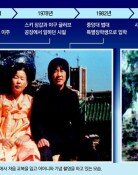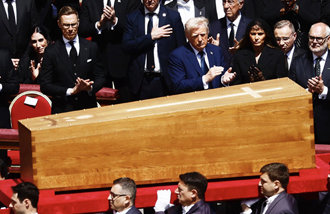Go South

This movie being the first by director Ahn Pan-seok, who previously worked as PD and directed TV dramas such as The Rose and Bean Sprout, uses humane paradoxical aesthetics to make modern people, who float in buoyant freedom and greed, ponder on the things they take for granted by portraying special people who have deserted their nation and family in order to survive. At a glance, the plot seems a bit flat. Pyongyang Mansoo Art Team horn player Sun-ho (played by Cha Seung-won) and War Memorial guide Yeon-hwa (played by Jo I-jin) are in love with each other. The two lovebirds are excited at the prospect of their upcoming marriage, but their fates are turned when Sun-hos family is caught exchanging letters with their South Korean relatives and must flee the country.
After successfully fleeing from North Korea after a myriad of events, Sun-ho endeavors to also bring Yeon-hwa to the South, even by being cheated out of his settlement money, but he is despaired when he finds out that Yeon-hwa has married someone else. Heartbroken and distressed, Sun-ho opens his heart to a lovely South Korean woman, Seo Kyung-ju (played by Shim Hye-jin), and ends up marrying her. However, out of the blue, Yeon-hwa appears in front of him, and the plots start to thicken.
The smooth unraveling of the plot suffers from a weakness in lacking a dramatic event, and as the movie heads toward the end, it becomes slightly monotonous, but overall it portrayed well a sensitive love story.
First of all, the lively reality of the movie is outstanding. The city of Pyongyang, Pyongyang Grand Theater where the art team performs, the April 15 Sun Festival where Sun-ho and Yeon-hwa first meet, the Mt. Daesong amusement park where both lovers date, and Okryugwan where cold buckwheat noodles are served, offer us a lively animated place of life where North Korean go through their daily emotions, just like us, unlike the familiar dry, black, and white stoic footage of Pyongyang.
In addition, Jo I-jin, who plays the role of Yeon-hwa, after rising to fame with her role in Typhoon Sun, acts naturally, and her North Korean accent covers the unsteady acting of Cha, who occasionally blurs out a South Korean accent. Nevertheless, the acting of Cha in his first melodrama seems quite successful.
Although he meets his love, Yeon-hwa, again and spends the night together, the monologue of Sun-ho who wanders looking for his lover who left him like morning fog represents ultimately where this movie is headed.
When I first joined the youth arts group, I thought that life was just about bravely defeating all the enemies of the world. I thought that I could just look and march forward without hesitation. But now that I look back, life is like music full of incomprehensive notes, that all I can do is to just play it, clumsily.
The border that the movie shows superficially is the wall that divides both Koreas, but do walls only exist on land? After all, our lives, when you think about it, are full of invisible walls. There are many walls that can be overcome during a lifetime, but there are others that should be acknowledged of their existence, and that is what this movie shows.
Mun-Myung Huh angelhuh@donga.com





